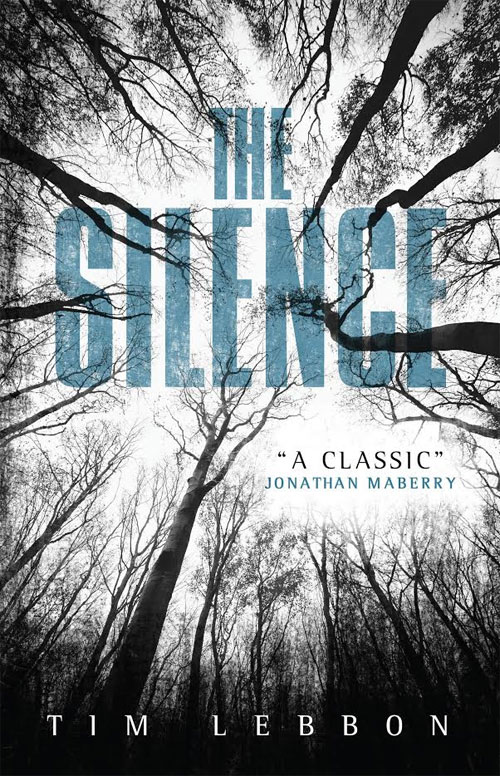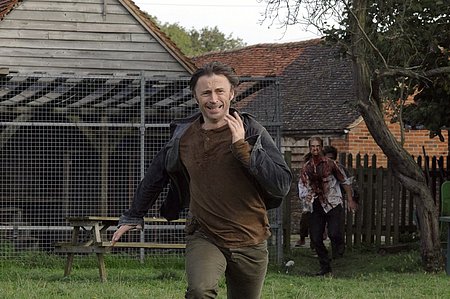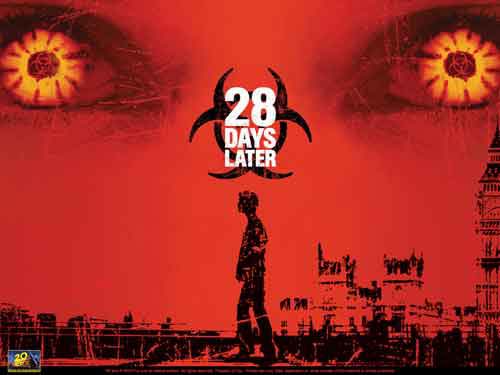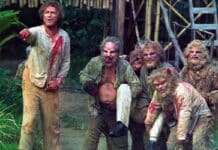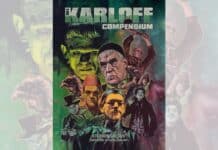ANDREW GARVEY takes a look at The Silence, Tim Lebbon’s fun new twist on the zombie genre…

You all know the routine by now. In every post-apocalyptic novel/comic/TV series there absolutely has to be at least ONE scene or sequence where the survivors have to stay quiet and hide from whatever caused the end of the world, whether it be the zombies/’the infected’/the marauding, rampaging mobs, or Donald Trump.
It’s such an integral, yet clichéd part of the story that finding an entire novel based around that premise is, in equal parts refreshing and concerning.
Prolific London-born, Welsh-based novelist and novelisationist (that may not be a word but he does a nice line in novelising major films) Tim Lebbon’s 2015 book ‘The Silence’ takes that idea and uses it to upend the genre while throwing in flying monsters, a family in peril and of course, lots and lots of gore.
The end result is a hugely enjoyable and original end-of-the-world-as-we-know-it action/horror novel that for me, worked just as well as M. R. Carey’s ‘The Girl With All the Gifts’. And I LOVED that!
Also, much like ‘The Girl…’ Lebbon’s novel looks adaptation-bound as an Americanised, New Jersey-set film version was being shopped around Cannes with John Leonetti (director of creepy doll film ‘Annabelle’) and the Van Dyke brothers (who wrote found footage monster romp ‘the Chernobyl Diaries’) attached.
While ‘the Girl…’ was about a fungal infection/zombie virus, ‘the Silence’ features a plague of savage, flying beasts unleashed when a previously closed, underground ecosystem is discovered in Moldova. Blind, voracious hunters who breed faster than Twitter trolls on the trail of a celebrity sex scandal, these ‘vesps’ attack anything that makes a noise, like, for example, screaming humans.
Admittedly, for me at least, much of this novel’s resonance for me is based on the family dynamic and, of course, their pet dog. I’m a father and I’m also the sort of soppy dog owner who was perfectly OK with watching Will Smith wander about the place as the rest of humanity have been wiped out in the (largely failed) Richard Matheson adaptation ‘I Am Legend.’ Until the dog died, that is.
And then I had a bit (more than a bit) of a cry in the cinema.
The ultimate fate of Otis, the loveable hound in this book is obvious long before it unfolds, but it’s still an emotionally draining passage. As for the rest of the family, our hero Ally, the teenage girl profoundly deafened by a horrific car crash, her irritating little brother, stoic grandmother and loving but busy parents, all feel like a real, relatable unit.
Ally and her father Huw are the real heroes, piecing together what’s happening, and how they should respond, as the story is largely told from their similar but crucially different perspectives. Ally’s chapters are related in the first person and Lebbon effectively handles the shift from her personal viewpoint to a third person narrative that takes in the internal thoughts and external actions of others.
Focusing on the apocalypse in England brings its own twists, too. There are very few guns, for one thing. And, when you’re planning to steal a jeep from an isolated car showroom, do you politely leave an IOU and a forwarding address for when everything’s back to normal?
As the world falls apart, Ally follows events via social media and official news and governmental pronouncements.
Obviously, the dwindling ranks of the Twitterati are more on top of things than the British government as the world burns and – yes it’s another cliché but a convincingly told one – survivors turn against each other in quite horribly imaginative ways.
A long-distance runner when he isn’t writing, it’s hardly surprising that Lebbon is particularly good when describing Britain’s more isolated, rural places and, while the world has turned unremittingly awful for most the story, Lebbon skillfully litters his narrative with odd scraps of hope and humanity.
But it’s Lebbon’s handling of the family’s struggles, how the main characters he focuses so heavily on, change, develop, hurt, collapse and repeatedly pick themselves up along a hard, vicious, cold road to survival that make this such a great read.


